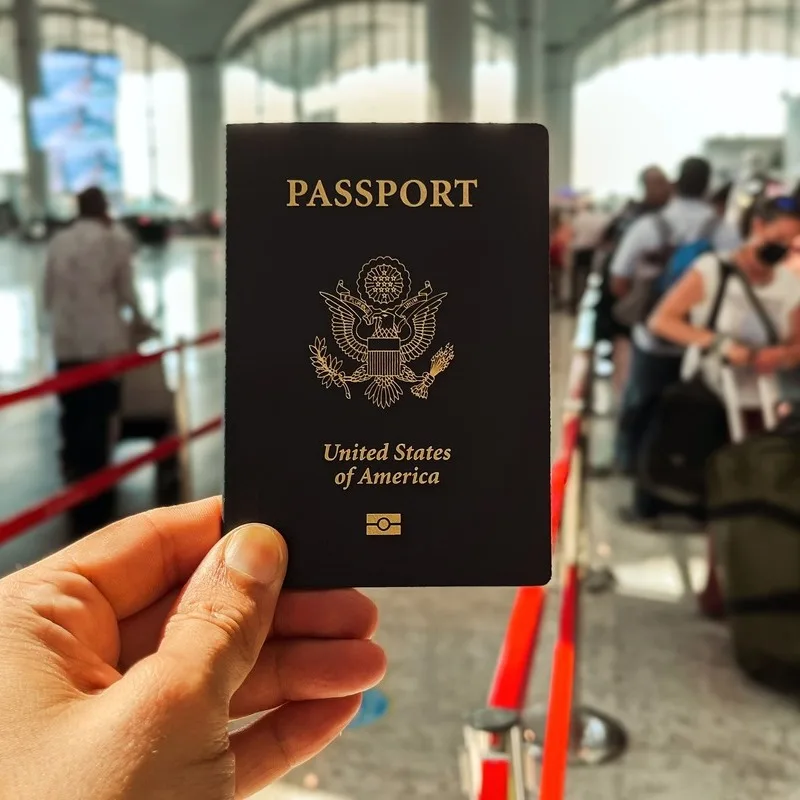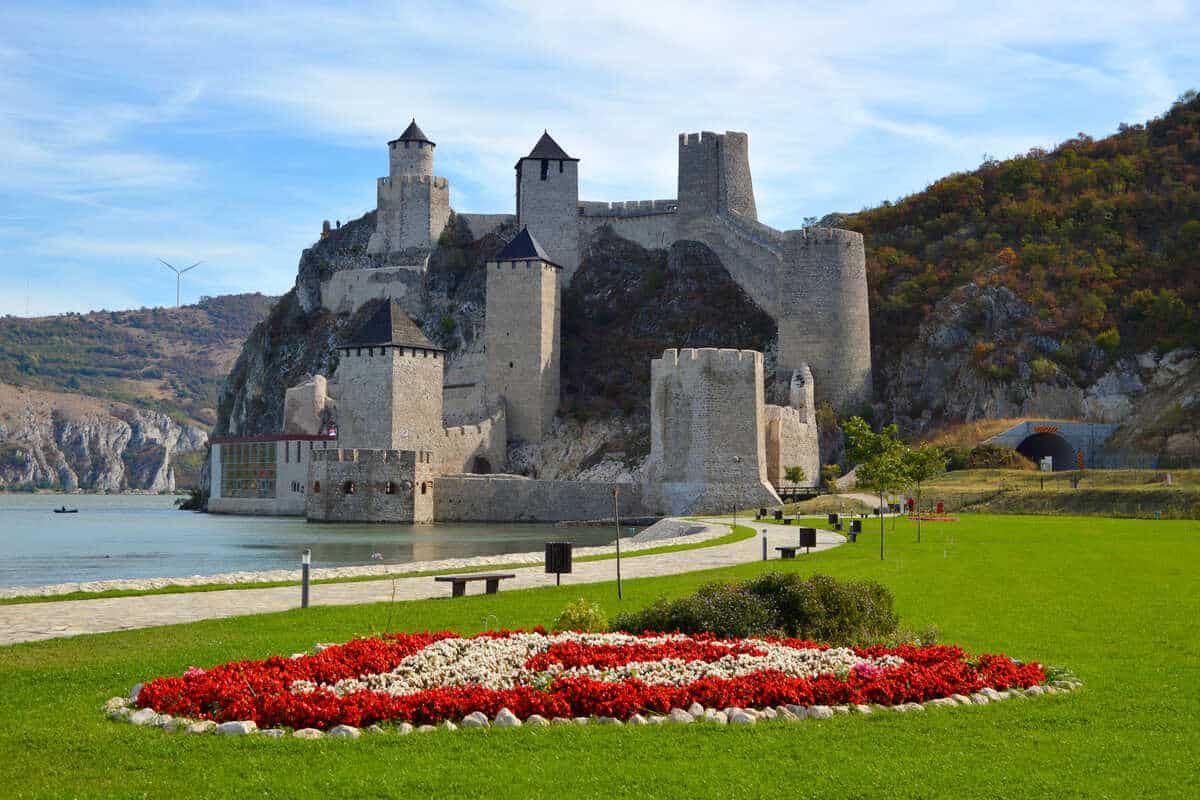Now that Europe’s border curbs have been fully lifted, Americans are returning in droves to the continent. The only downside to the resumption of normality?
The crowds are back, and all of Europe’s tourist hotspots are not only awash with tourists but facing huge price surges.
Fortunately for crowd-wary travelers and those looking to experience a summer in Europe without breaking the bank, there is a unique country that is often overlooked, within easy reach of U.S. nationals due to hosting nonstop flights from America.
Instead of using up your one-week summer leave in Italy, Spain, or Croatia, where literally everybody is going, why not head instead to the lesser-known yet equally incredible Serbia?
One Of Europe’s Most Underrated Summer Destinations
Serbia is a country in the Balkan Peninsula, a region in Southeastern Europe encompassing 12 countries either fully or partially, including the trendy vacation spots of Albania, Croatia, Montenegro, and continental Greece.
Unlike its famous neighbors, however, Serbia does not have a coastline. It does not straddle either the Mediterranean or the Black Sea, two bodies of water that border the peninsula, being located in its hinterland.
It may not have Greece’s white sand beaches nor Croatia’s turquoise-colored waters, but you definitely should not underestimate its potential as both a summer destination and a trove of cultural treasures awaiting discovery.

Serbia has a history spanning several centuries, including as a major Southeastern European power in the Middle Ages, but it’s best known for having been the financial center and spiritual capital of the now-dissolved communist state of Yugoslavia.
Yugoslavia was a federation comprising not only Serbia but also the whole of modern-day Slovenia, Croatia, Bosnia and Herzegovina, North Macedonia, and the disputed territory of Kosovo, though power was de facto centralized in Serbia.
The Serbian capital, Belgrade, is renowned for its Yugoslav-era edifices, often interspersed with classic Central European architecture and much older medieval-era landmarks.

It is easily Serbia’s main tourist city.
Is Belgrade Europe’s Most Underrated City Break?
Belgrade sits at the confluence of two of Europe’s largest rivers, the Danube and the Sava, and though it may not be as popular among vacationers as other major European capitals, such as Paris or Rome, its Orthodox dome-dotted cityscape, on the banks of the Danube, is probably an image you’ve seen circulating on the internet.
Europe’s Newest Party Capital
The city itself is an incredibly vibrant and youthful destination, particularly at weekends, when the landmark Knez Mihailova Street, a pedestrianized avenue flanked by grandiose buildings, comes alive at night, with young people spilling out of local bars holding their rakija-infused drinks or enjoying their dinners alfresco.

Belgrade is also famous for having an edgy party scene that rivals that of Berlin and London, so if you’re into electronic music and unrestricted fun, you definitely should pay the Klub Studenata Tehnike a visit.
Entry fees are quite cheap, pretty much like everything else in Serbia, and it’s your best bet at mingling with the locals. Other options include the Gradska Kafana and the major venue of Klub Magacin.
History All Around
If you’re a History buff and Belgrade’s lively social scene doesn’t make your heart beat any faster, you will be thrilled to learn this is a city jam-packed with forts, historic monuments, off-path, postcard-ready cobbled streets, and an imposing medieval fortress to top it off.

The Church of Saint Sava is the largest Orthodox temple in all of the Balkans, even surpassing Bulgaria’s iconic Alexander Nevsky Cathedral in size, and the Kalemegdan, a castle overlooking the Danube and Sava rivers, stands among the region’s most impressive by the sheer scale of its fortifications.
Belgrade is also home to top-notch museums, like the Museum of Yugoslavia, which chronicles the former country’s complex History, and the Nikola Tesla Museum. In case you weren’t aware, the legendary naturalized-American inventor was in fact born an ethnic Serbian in Yugoslavia.
Explore Serbia Beyond Belgrade
Outside Belgrade, the country has a surprisingly vast cultural wealth, most notably in places like Novi Sad, the second largest urban conurbation, and a well-preserved gem of the Austrian-Hungarian Empire best known for its beautiful European piazzas and traditional architecture.

Novi Sad was named one of Europe’s cultural capitals this year, making History as the first city lying outside the European Union to make the list.
Niš, alternatively spelled ‘Nish’, is Serbia’s third best offer, boasting a rich Byzantine heritage as the birthplace and/or primary place of residence of several larger-than-life figures, including Constantine the Great, the first Christian Emperor and founder of Constantinople (now called Istanbul).
Outside the urban centers, visitors will find scenic canyons, natural reserves dotted with medieval castles and ancient fortifications, lake regions, and small, quintessentially Serbian towns yet to be influenced by multiculturalism.

Gorgeous Balkan Nature
Uvac is easily the country’s most popular natural attraction, with a deep azure river meandering through a dramatic mountainous scenery.
Other interesting sights include Đavolja Varoš, or Devil’s Town, a menacing-sounding name for an idyllic area of beautiful geological formations resembling towers, and the Tara National Park, on the border with Bosnia and Herzegovina, full of crystal-clear waterways, lakes where locals and visitors alike go for refreshing dips in the scorching Balkan summer and centuries-old monasteries.
What’s most shocking? Very few travelers pick Serbia as a vacation destination despite its affordability and world-class city breaks, and breathtaking panoramas.

Last year, only 1,772,763 entered Serbia, an 86% increase year-on-year following the pandemic slump, but still far lower than other Balkan nations’ soaring figures.
You know how it goes: fewer tourists often equals more authenticity and fairer prices.
Serbia Is Cheaper Than Most European Countries
When it comes to prices, Serbia is comparatively cheaper than any Western European or well-developed European Union (EU) nation it could be compared to.

According to LivingCost, individual residents spend the equivalent of US$835 on average per month, including US$433 for rent and utilities, US$259 for food, and a mere US$65 for transport.
These prices reflect the expenditure of the local populace, and although tourists often spend more, they can still benefit from Serbia’s lower-than-average prices when traveling on a budget.
Even if splurging is their thing, they would have to try really hard to be handed an astronomical bill dining at a mid-range restaurant.

Even luxury accommodation is quite affordable, with five-star listings on Booking.com selling for as low as US$147 for the landmark Metropole Palace, though regular Bed & Breakfast accommodation can be found for US$41 or less this summer.
The cheapest accommodation available are youth hostels, with prices starting at just US$9 per night.
The Only Western Balkan Country With Year-Round Nonstop Flights From America
Flying from the United States to Serbia has never been easier.

Interestingly, it is the Western Balkan country best connected to America and the only one to host year-round Transatlantic flights other than Greece – not even Croatia enjoys regular service to the States, let alone two of its busiest hubs.
AirSerbia, the nation’s flag carrier, offers flights to Belgrade from Chicago O’Hare (ORD) and New York (JFK), and they have been considering adding more routes.
Flights from New York-JFK are available daily, departing at 19:20 and arriving at Belgrade at 10:20 on the next calendar date, for a total flight duration of 8h50.
Returning to New York, passengers depart Belgrade at 13:15, landing at JFK at 17:15 on the same calendar date.

Fares for a one-way route in Economy Deal start at US$723.03, though Business Freedom seats can be as expensive as US$2,453.77 on certain summer dates. The most expensive ticket features two 32 kg carry-on bags, fast-track access, lounge access, and priority boarding.
As for Chicago O’Hare, flights follow the schedule below:
Outbound flights
- Mondays: Departure from ORD (18:40 local time) – Arrival to BEG (11:20 local time)
- Wednesdays: Departure from ORD (12:40 local time) – Arrival to BEG (05:30 local time)
- Saturdays: Departure from ORD (23:10 local time) – Arrival to ORD (15:50 local time)
*Outbound flights arrive on the next calendar date

Return flights
- Mondays: Departure from BEG (13:20 local time) – Arrival to ORD (16:50 local time)
- Wednesdays: Departure from BEG (07:35 local time) – Arrival to ORD (11:05 local time)
- Saturdays: Departure from BEG (17:50 local time) – Arrival to ORD (21:20 local time)
One-way fares for the JFK-BEG route start at US$723.03 for the month of July, while travelers flying from ORD have access to tickets for as cheap as US$709.77 on select dates when booked in advance.
Belgrade Airport serves not only Belgrade but also other Balkan countries bordering Serbia, where Transatlantic routes are non-existent, such as Northern Croatia, Bosnia and Herzegovina, Montenegro, and more.

There is a regular bus service linking Belgrade, Novi Sad, and other Serbian cities to all of these neighboring countries.
Americans Can Stay In Serbia For 3 Months Irrespective Of Other Time Spent In Europe
Americans can stay in Serbia for up to 3 months as short-term visitors.
Serbia is not a member of the European Union nor the Schengen Zone, so any time spent in Serbia does not count towards your 90-day visa-free limit to visit the EU as an American national.

Additionally, as Serbia is not bound by Schengen rules, it is one of a handful of European destinations Americans will be granted hassle-free entry from next year when the European bloc is set to implement an online travel authorization system requiring Americans to pay a fee and apply for the right to travel ahead of boarding their flights.
This doesn’t apply to Serbia or, in fact, any European country that is not a member of the European Union or Schengen.

